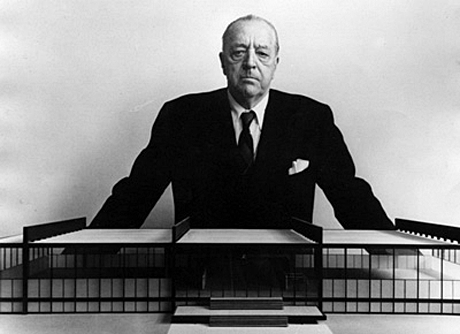On Monday, February 10, the Illinois Insitute of Technology officially launched the Mies Crown Hall Americas Prize.
The College of Architecture at Illinois Institute of Technology established the Americas Prize to recognize the most distinguished architectural works built on the North and South American continents.
The Prize will be awarded biennially within the masterpiece of S. R. Crown Hall, the organization’s Chicago-based laboratory and mission control center. The recipients of this new prize will be named by a jury of professional architects, curators, writers, editors, and other individuals whose work has had a lasting influence on the theory and practice of design.
It will be twofold in nature: it will recognize pre-eminence in architecture while additionally awarding a member of the profession’s younger generation, by way of the Americas Prize for Emerging Architecture, that harnesses the talent and ambition needed to devise and bring forth a truly outstanding first?/?early built work.
The Americas Prize is awarded to the best architectural work in the Americas completed in the preceding two years. The authors of the winning project receive an award of $50,000 and the MCHAP Chair at Illinois Institute of Technology for the following academic year. The MCHAP Chair(s) will establish research related to the theme of ‘rethinking the metropolis,’ will give a public lecture as part of the IIT College of Architecture’s lecture series, and engage in other agreed upon forms of academic research. The Americas Prize is announced at the Prize Ceremony in the fall of the award year.
The MCHAP Book will feature the Americas Prize Winner, in addition to the Finalists, the Americas Prize for Emerging Architecture Winner, and the Outstanding Projects recognized by the Jury. Through a series of diverse essays and articles, the book will highlight the architectural perspective that challenges the limits of the profession. The Americas Prize Winner will be profiled internationally in print, film and digital media.
The Americas Prize for Emerging Architecture is awarded to an outstanding built work in the Americas by an emerging practice completed within the preceding two years. The authors of the winning project receive an award of $25,000 USD and the MCHAP Research Professorship at Illinois Institute of Technology for the following academic year, where they will lead a studio related to ‘rethinking metropolis’. The Americas Prize for Emerging Architecture is announced at the Benefit Ceremony in the spring of the award year.
In addition to being featured in the MCHAP Book, the Americas Prize for Emerging Architecture Winner will receive a monograph focusing on their award-winning work.
For more information, visit: http://arch.iit.edu/prize/mchap?v=
Related Stories
| Dec 7, 2010
Product of the Week: Petersen Aluminum’s column covers used in IBM’S new offices
IBM’s new offices at Dulles Station West in Herndon, Va., utilized Petersen’s PAC-1000 F Flush Series column covers. The columns are within the office’s Mobility Area, which is designed for a mobile workforce looking for quick in-and-out work space. The majority of workspaces in the office are unassigned and intended to be used on a temporary basis.
| Dec 6, 2010
Honeywell survey
Rising energy costs and a tough economic climate have forced the nation’s school districts to defer facility maintenance and delay construction projects, but they have also encouraged districts to pursue green initiatives, according to Honeywell’s second annual “School Energy and Environment Survey.”
| Dec 2, 2010
GKV Architects wins best guest room design award for Park Hyatt Istanbul
Gerner Kronick + Valcarcel, Architects, PC won the prestigious Gold Key Award for Excellence in Hospitality Design for best guest room, Park Hyatt Macka Palas, Istanbul, Turkey. Park Hyatt Maçka Palace marries historic and exotic elements with modern and luxurious, creating a unique space perpetuating Istanbul’s current culture. In addition to the façade restoration, GKV Architects designed 85 guestrooms, five penthouse suites, an ultra-hip rooftop bar, and a first-of-its-kind for Istanbul – a steakhouse, for the luxury hotel.
| Dec 2, 2010
U.S Energy Secretary Chu announces $21 Million to improve energy use in commercial buildings
U.S. Energy Secretary Steven Chu announced that 24 projects are receiving a total of $21 million in technical assistance to dramatically reduce the energy used in their commercial buildings. This initiative will connect commercial building owners and operators with multidisciplinary teams including researchers at DOE's National Laboratories and private sector building experts. The teams will design, construct, measure, and test low-energy building plans, and will help accelerate the deployment of cost-effective energy-saving measures in commercial buildings across the United States.
| Nov 29, 2010
Data Centers: Keeping Energy, Security in Check
Power consumption for data centers doubled from 2000 and 2006, and it is anticipated to double again by 2011, making these mission-critical facilities the nation’s largest commercial user of electric power. Major technology companies, notably Hewlett-Packard, Cisco Systems, and International Business Machines, are investing heavily in new data centers. HP, which acquired technology services provider EDS in 2008, announced in June that it would be closing many of its older data centers and would be building new, more highly optimized centers around the world.
| Nov 29, 2010
New Design Concepts for Elementary and Secondary Schools
Hard hit by the economy, new construction in the K-12 sector has slowed considerably over the past year. Yet innovation has continued, along with renovations and expansions. Today, Building Teams are showing a keener focus on sustainable design, as well as ways to improve indoor environmental quality (IEQ), daylighting, and low-maintenance finishes such as flooring.
| Nov 29, 2010
Renovating for Sustainability
Motivated by the prospect of increased property values, reduced utility bills, and an interest in jumping on the sustainability bandwagon, a noted upturn in green building upgrades is helping designers and real estate developers stay busy while waiting for the economy to recover. In fact, many of the larger property management outfits have set up teams to undertake projects seeking LEED for Existing Buildings: Operations & Maintenance (LEED-EBOM, also referred to as LEED-EB), a certification by the U.S. Green Building Council.
| Nov 23, 2010
The George W. Bush Presidential Center, which will house the former president’s library
The George W. Bush Presidential Center, which will house the former president’s library and museum, plus the Bush Institute, is aiming for LEED Platinum. The 226,565-sf center, located at Southern Methodist University, in Dallas, was designed by architect Robert A.M. Stern and landscape architect Michael Van Valkenburgh.
| Nov 23, 2010
Honeywell's School Energy and Environment Survey: 68% of districts delayed or eliminated improvements because of economy
Results of Honeywell's second annual “School Energy and Environment Survey” reveal that almost 90% of school leaders see a direct link between the quality and performance of school facilities, and student achievement. However, districts face several obstacles when it comes to keeping their buildings up to date and well maintained. For example, 68% of school districts have either delayed or eliminated building improvements in response to the economic downturn.













